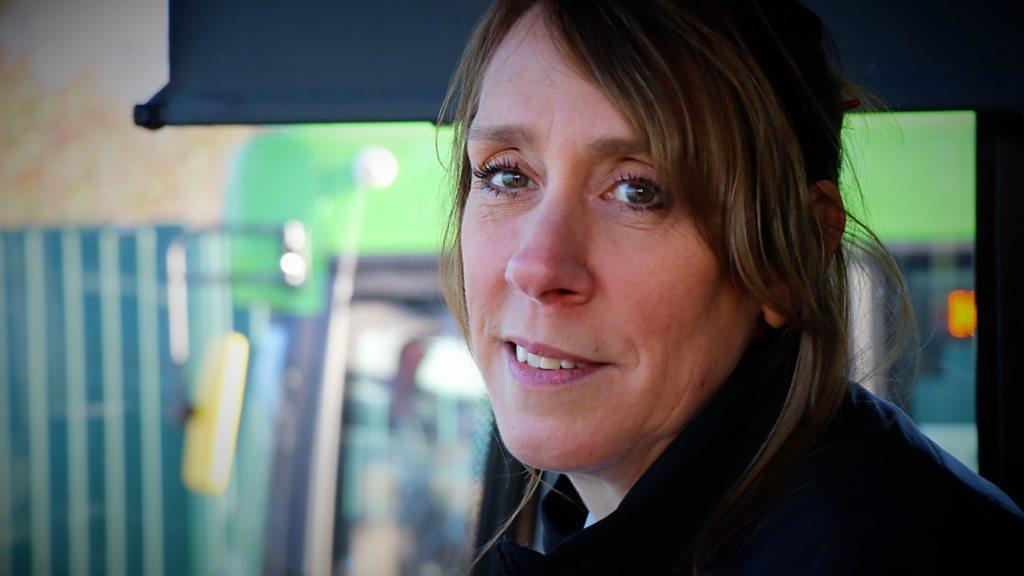Go North East launches campaign for women bus drivers
- Published
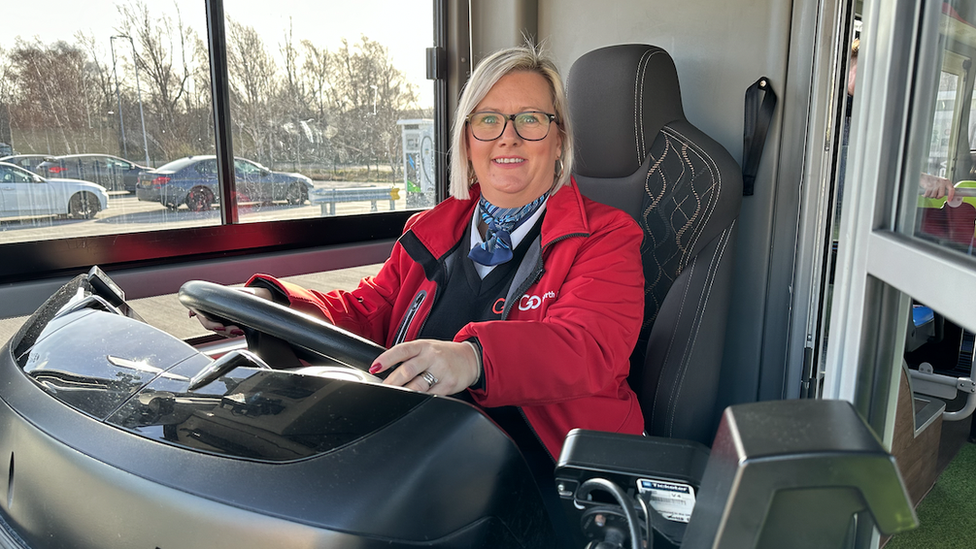
Paula Ullathorne, 42, was previously working in palliative care
A palliative care worker who swapped her career for a job behind the wheel is encouraging more women to apply.
About one in 10 UK bus drivers are women, according to the Confederation of Passenger Transport (CPT).
Go North East, where 9% of its workforce are women, launched a recruitment campaign this week.
Consett bus driver Paula Ullathorne, who left health and social care last year, said the industry was "open to everyone".
The 42-year-old, from County Durham, had worked in end of life care for several years but wanted a "job with less stress".
"I needed a career change, needed something less stressful on my mental health, everything was emotional, especially after working all the way through Covid," she said.
"I'm not saying it was an easy ride for me but I did it. I didn't think I would [manage] and at times, I thought I wasn't going to get there - now I thoroughly enjoy it."

Go North East employs thousands of workers
Ms Ullathorne, who said she was not looking back, has encouraged all women to give the role a go.
She said: "We need to start being a better force, us women.
"It used to be seen as a man's role, but this is the 21st Century and we need to get more numbers up to be equal to the man."
She added: "[Woman] are more approachable - I feel that after being a driver for a year, and feel we don't get as much grief, hassle, attitude from passengers."
Like many operators, Go North East has set itself a target to increase its workforce made up from women by 2025.
Ben Maxfield, Go North East's business director, said the recruitment of more women and those from diverse backgrounds was a priority.
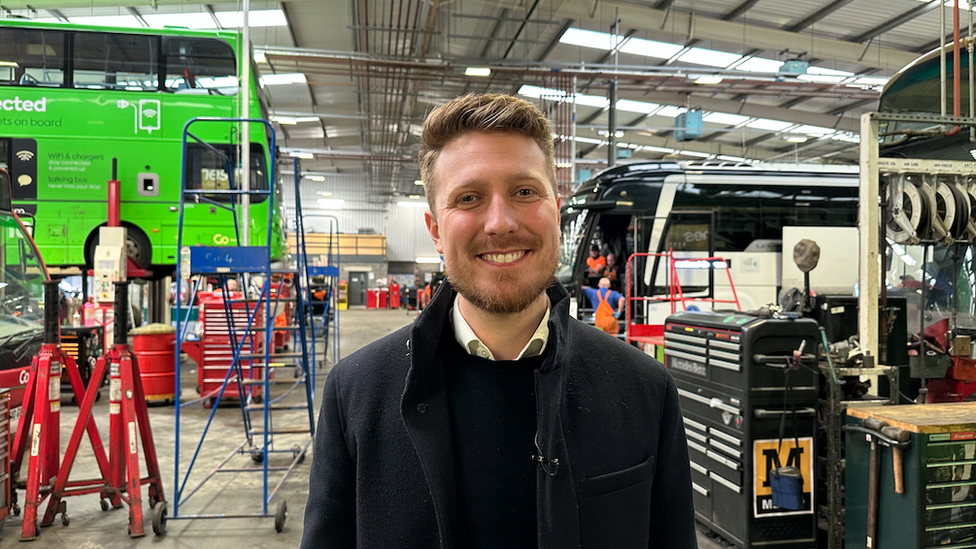
Ben Maxfield said Go North East needed to meet a target by 2025
He said: "We're involved in lots of things to drive us towards a target of at least 20% and we're trying to talk to people who might not normally consider bus driving...
"We're looking for anyone with a licence, who can drive a car, who feels they would like to have a go driving a bus."
Mr Maxfield said the industry needed to "break down the stereotypes" and a belief it was reserved for male workers.
The CPT said the recruitment of more women could also help solve a national shortage of drivers which has been affecting services across the UK.
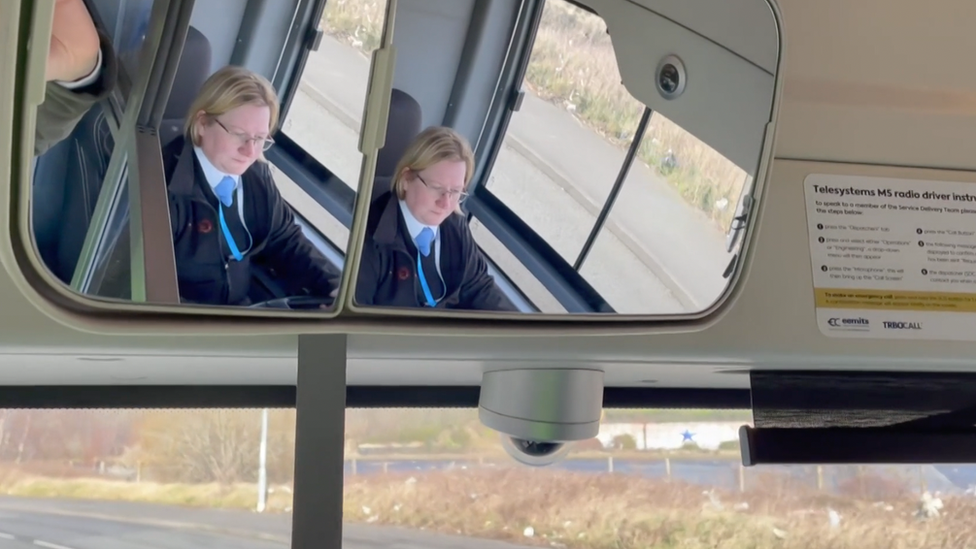
Tracy Hannington from Go North East's driving school
Tracy Hannington, from Go North East's driving school, said: "Women can sometimes cope with things a little better on the road.
"Generally once we've trained females they stay for a long time because they do enjoy it and that's the way forward."
Graham Vidler, chief executive of CPT, said: "We've allowed ourselves to let a culture develop where people think bus driving is our profession, and that we build our depots and our workplaces around them.
"It could be silly things like in the past, you know, not being able to find a female toilet in a depot, things that are in the past now.
"I think the legacy of them carries on and that's why we need to do everything we can, as Go North East is doing at the moment, to make sure that women know that they're welcome within our workforce, that there's a place for them, and we will and accommodate them fully and fairly."
Mr Vidler, admitted that while there is "still a long way to go", the recruitment of more women will eventually "build a more diverse and inclusive workforce" too.

Follow BBC North East & Cumbria on Twitter, external, Facebook, external and Instagram, external. Send your story ideas to northeastandcumbria@bbc.co.uk, external.
- Published4 November 2022
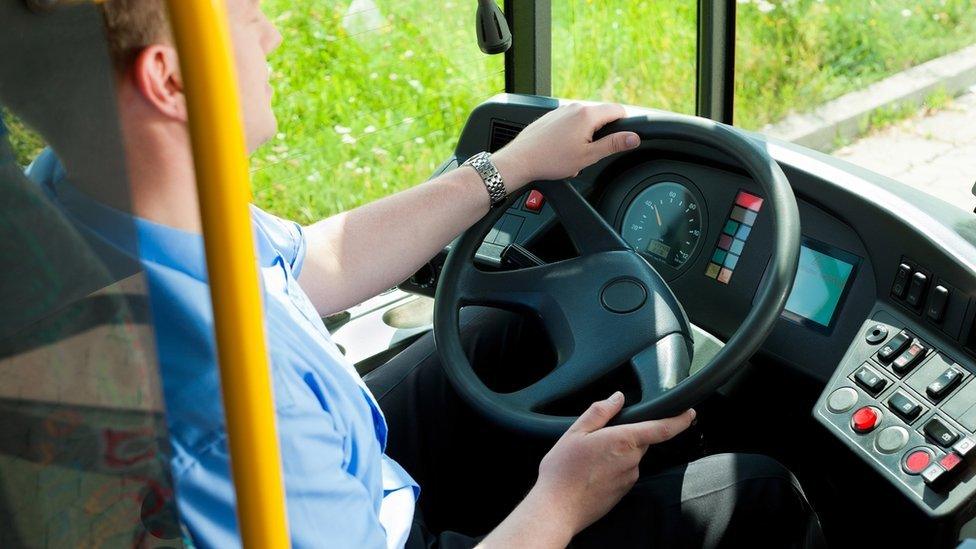
- Published17 January 2022

- Published28 December 2021
